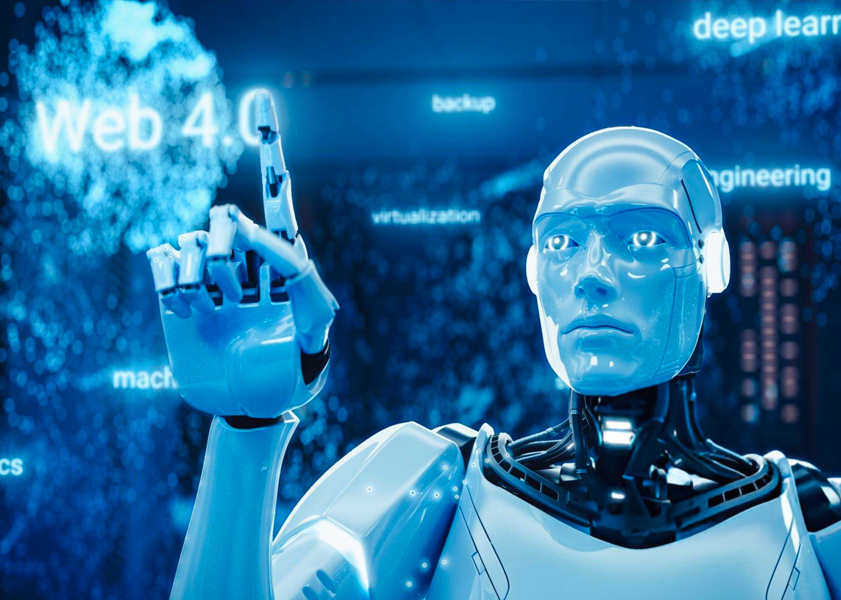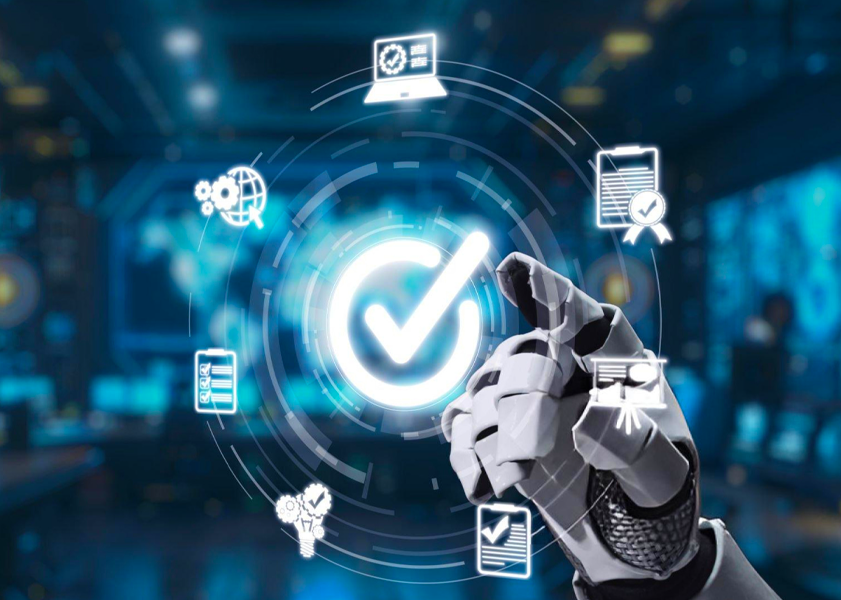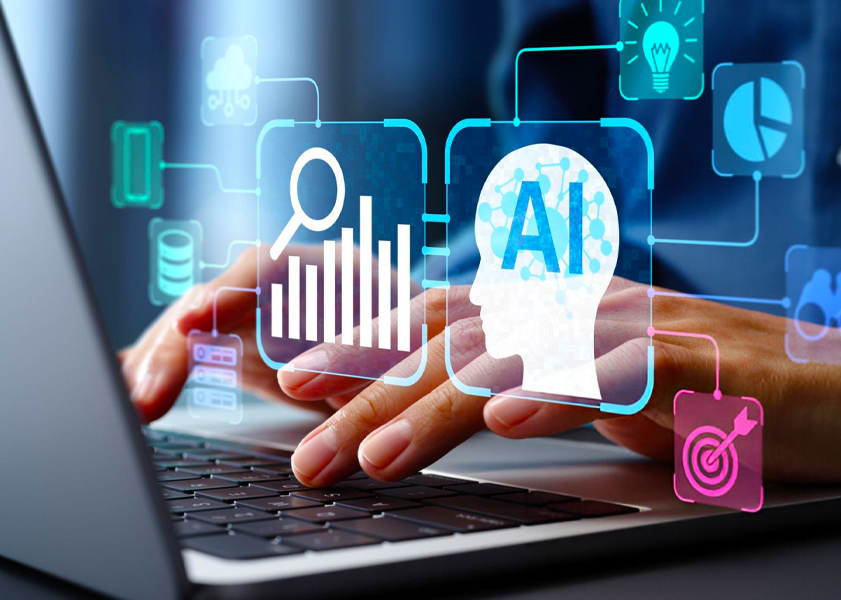The Role of AI in Enhancing ServiceNow Workflow Automation

Overview
Automation is no longer a luxury but a necessity for enterprises seeking to stay ahead of the competition. In such a scenario, ServiceNow – a leading cloud-based platform, empowers organisations to automate complex workflows. However, the infusion of Artificial Intelligence (AI) is taking this automation to new levels. By integrating AI into workflow automation, ServiceNow go far beyond simple task automation to intelligent process orchestration that can learn, adapt, and optimise on the go.
This transformation enables businesses not only to accelerate their routine operations but also to improve decision-making, predict challenges before they escalate, and deliver more personalised services. So, how exactly does AI improve ServiceNow workflow automation? What specific AI capabilities are powering this transition, and how are enterprises benefiting from it? Let’s explore the powerful integration of AI and ServiceNow and unveil how this unique combination is reshaping the future of enterprise workflow automation.
What is ServiceNow Workflow Automation?
Before we discover AI’s role, it is essential to understand what ServiceNow workflow automation actually is. Well, at it is core, ServiceNow is crafted to simplify business processes across IT, HR, customer service, security, and more by creating automated workflows that connect people, functions, and systems smoothly.
Imagine a service desk receiving numerous tickets daily. ServiceNow workflows route these tickets to the appropriate teams, track progress, trigger approval, and ensure timely resolution – all with minimal human intervention. This automation reduces manual errors, speeds up operations, and boosts service delivery.
However, traditional workflow automation relies primarily on predefined rules and manual setup. This is where AI steps in, transforming workflows from static sequences into intelligent, self-learning processes that can adapt and optimise in real-time.
Want Smarter Workflows? Avatu’s AI-powered ServiceNow Workflow Automation transforms your business!
The Role of AI in Workflow Automation
In today’s fast-paced digital environment, artificial intelligence isn’t just a buzzword but a game-changer for workflow automation on platforms like ServiceNow. By integrating AI capabilities like machine learning, natural language processing, and predictive analytics, ServiceNow workflows become more proactive, context-aware, and efficient.
Think about the difference between a rule-based process that assigns tickets based only on keywords and an AI-powered system that can figure out what the request is about, how important it is, and and even offer the best solution. This indicates that AI adds layers of intelligence that allow workflows to think, learn, and act autonomously. The following are some of the crucial roles played by AI in workflow automation: .
Enterprises working to strengthen IT operations and improve service reliability often leverage BMC Consulting Services to streamline monitoring, automate processes, and enhance overall IT performance.
Smarter Decision-Making
AI algorithms evaluate historical data and real-time inputs to make better decisions within workflows.

Self-Learning
Workflows actively improve by learning from past results and adapting to new situations.

Natural Interaction
AI empowers workflows to understand and interact using natural language, making it convenient for users to engage.

Predictive Insights
AI can predict issues before they arise, enabling workflows to trigger preventive measures.

What Are The Key AI Capabilities That Enhance ServiceNow Workflows?
To truly improve workflow automation, ServiceNow integrates advanced AI capabilities that go beyond rule-based logic. These capabilities allow for smarter, faster, and more adaptive processes across departments. Let us break down some of the specific AI capabilities that enhance ServiceNow workflows:
Teams aiming to improve project visibility, collaboration, and DevOps performance frequently turn to Atlassian Consulting Services to optimise tools like Jira, Confluence, and the rest of the Atlassian ecosystem.
1. Natural Language Processing (NLP)
ServiceNow uses Natural Language Processing to interpret unstructured data from user inputs, emails, chatbots, and voice commands. This enables workflows to comprehend the context and intent behind requests without requiring the exact keyword matches.
For instance, if a user submits a vague IT support ticket saying, “My computer is acting weird,” then the NLP-powered workflows can classify the issue, ask clarifying questions, and route it to the appropriate team without human intervention.
2. Machine Learning (ML)
Machine Learning algorithms learn patterns from historical workflow data to forecast outcomes and suggest improvements. They can determine bottlenecks, estimate task completion times, and recommend resource allocation.
For example: Based on your past ticket resolutions, ML models forecast which type of issues need escalation and automatically adjust workflows to prioritise them.
3. Predictive Analytics
By evaluating trends and performance metrics, predictive analytics can predict future incidents, service demands, or resource requirements, allowing proactive workflow adjustments.
Like, a surge in service requests during a product launch can be anticipated, and workflows can automatically allocate more support staff to tackle the increased load.
4. Intelligent Virtual Agents (IVAs)
ServiceNow’s AI-powered chatbots act as the first line of support, communicating with users, answering FAQs, and triggering workflows based on user inputs. For example, an IVA can instantly resolve password reset requests or increase complex queries by initiating the appropriate automated workflows.
5. Robotic Process Automation (RPA) with AI
RPA bots tackle repetitive activities, but AI enhances these bots’ decision-making ability, allowing them to handle more complicated circumstances.
For instance, automating data entry integrated with AI-driven validation ensures data accuracy and accelerates workflows without human error.
Together, these AI features elevate ServiceNow from a potent automation tool to an advanced workflow engine.
Businesses looking to improve customer experience and unify their sales operations often rely on Salesforce Consulting Services to implement the right CRM strategy and maximise the value of the Salesforce platform.
Want proactive workflow automation? Let Avatu show the way!
What Are The Benefits of AI-Driven ServiceNow Workflows?
AI’s integration in ServiceNow workflows goes beyond automation as it introduces intelligence, adaptability, and foresight into everyday processes. This transition brings measurable benefits that significantly improve operational efficiency and service quality. Some of the major benefits are:
- Improved Efficiency and Speed: AI automates not just the mechanical parts of workflows but also the cognitive decisions, minimising delays and speeding up process completion.
- Enhanced Accuracy and Consistency: AI lowers human mistakes by standardising decision-making based on insights derived from data, resulting in consistent outputs.
- Greater Scalability: As businesses flourish, AI-powered workflows can tackle increasing volumes and complexity without requiring proportional increases in human resources.
- Proactive Case Resolution: AI’s predictive capabilities allow workflows to determine and solve issues before they arise, reducing downtime and elevating customer satisfaction.
- Better User Experience: Natural language interactions, instant responses from virtual agents, and personalised service journeys make the user experience smooth and engaging.
- Continuous Improvement: AI models learn from each interaction and outcome, empowering workflows to evolve dynamically and become smarter over time.
Real-World Applications and Use Cases
The theoretical benefits of AI in workflow automation become very apparent when we look at real-world instances of AI-enhanced ServiceNow deployments. Some of the most popular real-world applications include:
- IT Service Management (ITSM): AI-powered ServiceNow workflows automate incident classification, prioritisation, and routing. Virtual agents tackle common support requests 24/7, freeing up IT teams to concentrate on strategic initiatives. Furthermore, predictive analytics warn of potential system outages, triggering preventive workflows.
- HR Service Delivery: AI chatbots simplify employee onboarding by guiding new hires through paperwork, training schedules, and benefits enrollment. Workflow automation dynamically adapts to policy changes and employee feedback, enhancing HR responsiveness.
- Customer Service Management: AI evaluates customer sentiment and urgency in support tickets, empowering workflows to prioritise and escalate accordingly. Automated routing ensures that the appropriate professional handles each issue, reducing resolution times and increasing satisfaction.
- Security Operations: AI determines anomalous patterns indicating security threats. ServiceNow workflows automatically initiate containment and remediation actions, reducing the risks and accelerating incident response.
Many organisations modernising their workflows often begin by exploring specialised ServiceNow Consulting Services, which help them redesign processes, reduce inefficiencies, and build scalable digital foundations.
Conclusion
AI is transforming ServiceNow workflow automation by transforming static, rule-based processes into intelligent, adaptive systems that learn, predict, and interact naturally. The integration of AI capabilities like natural language processing, machine learning, and predictive analytics equips organisations to operate faster, smarter, and more proactively.
If your enterprise is using ServiceNow, leveraging AI within workflows is not just an option but a strategic move to unlock new levels of productivity and service excellence. Wondering how to start? That’s where Avatu enters the scenario. Whether you’re seeking to make your workflows more predictive, automate with precision, or simply get more out of your ServiceNow investment, we help you turn potential into performance.
Why wait, then? The future of workflow automation is here, connect with Avatu Private Limited today and reimagine what your workflows can do together!
Looking to optimize ServiceNow workflows with AI? Let Avatu guide you!
Frequently Asked Questions
1. How is AI reshaping traditional ServiceNow workflows beyond basic automation?
AI shifts ServiceNow workflows from static, rule-based sequences to adaptive systems that understand context, learn from patterns, and make predictive decisions, turning automation into intelligent orchestration.
2. What makes AI-enhanced workflows a strategic advantage rather than just a tech upgrade?
AI empowers workflows to operate proactively, reducing delays, predicting risks, and adapting in real–time, making it a core driver of business agility, not just process efficiency.
3. How do Natural Language Processing and Machine Learning actually work within ServiceNow?
NLP interprets user intent from unstructured inputs like chat or email, while ML analyses historical data to forecast outcomes and refine workflows, reducing manual intervention and improving accuracy.
4. In what ways can predictive analytics in ServiceNow prevent workflow disruptions?
Predictive analytics spots patterns early, like ticket surges or system lags, and triggers preventive workflows automatically, helping teams resolve issues before they escalate.
5. How can organizations start infusing AI into ServiceNow without overhauling existing systems?
With the right partner, AI capabilities like virtual agents, ML models, and predictive routing can be integrated incrementally into existing workflows, unlocking value without disrupting operations.


